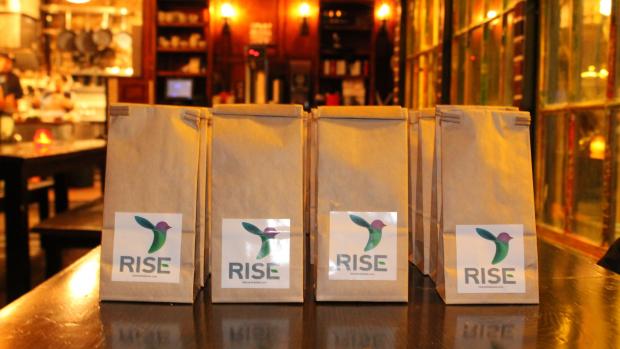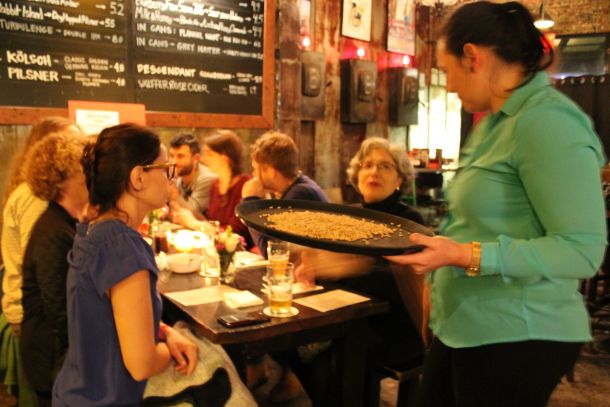RISE Team Upcycles Food Waste into Flour
Tandon students and alumni collaborate with other NYU schools on award-winning project

Last year, when the New York City Economic Development Corporation (NYCEDC), called for marketable tech tools to help solve pressing civic problems, Bertha Jimenez, then a Ph.D. candidate in the Department of Technology Management and Innovation, helped develop RISE (Real-time Industrial Symbiosis Exchange) — an online marketplace for industrial by-products. Jimenez and her teammates knew that after breweries processed grain to make beer, they were left with a semisolid substance that might have potential uses in commercial bakeries. As they envisioned it, RISE could prove useful in those and any number of other industries, with wine by-products being used to make cosmetics, for example, or coal by-products purchased for use in glassmaking. NYCEDC judges agreed that the idea was a good one, and RISE made it to the finals of the organization’s “BigApps NYC” contest.
The team — which also included Jessica Aguirre and Remington Tonar from the School of Professional Studies; Martina Balestra, a doctoral student in Tandon’s Department of Technology Management and Innovation; Lev Tatz from the College of Arts and Science; and Nilufer Polat, a School of Engineering grad — knew that it was one thing to let people know that spent grain could be milled into a flour surprisingly high in fiber and protein and another thing entirely to get them to go around to breweries to collect the sodden material for processing.
They hit upon a plan for doing the heavy lifting themselves. After Jimenez earned her doctoral degree in May of 2016, the team members, which now included Tandon graduate student Ashwin Gopi, arranged with a group of microbreweries in Brooklyn to make regular pick-ups of their spent grain, which would otherwise end up in landfills. They then carted the grain to Jimenez’s apartment, where they had set up a makeshift production facility.
“Spent grain is 90 percent water, so the first step is to squeeze out as much as possible by machine,” Jimenez explains. “Then it has to be heated to kill any bacteria and make it fit for human consumption. After it’s dehydrated further, it can be milled and sifted. The end product has more protein than chicken.”
The flour, which the team has yet to brand with a name, has a pleasing nutty aroma and toasty color, and Jimenez is working to convince local chefs to try baking with it. “Each type of spent grain has subtly distinct characteristics,” she says. “We’ve worked with pale ale, stout, and porter with good results.”
The project recently won an NYU “Green Grant” of $10,000 (awarded to those demonstrating the viability of best practices and technologies for sustainability) and was named a finalist for the 2017 Food+City Challenge Prize, an annual contest hosted by the Austin-based non-profit aimed at inspiring action and positive change in food logistics. Winners of the awards, which total $50,000, will be announced next February.
RISE was also named one of the top ideas in an OpenIDEO challenge to reduce food waste. (OpenIDEO is an open-source platform that allows people from around the world to collaboratively think of solutions to important global problems.) That recognition helped the team attract private funding that they’re using to continue their research into optimal dehydration methods, do marketing, and other such steps on the road to becoming a full-fledged business.
The original project was launched under the supervision of Professor Anne-Laure Fayard, who has said, “The RISE Team is a great example of how students from different majors and schools at NYU can come together to work on an innovative idea that can really make an impact.” Noting that the idea had first been conceived back in 2012, she continued, “Research shows how good ideas rarely come out fully grown and that innovators need to be resilient and persistent, exactly as the RISE team has proven to be."
That resilience and persistence may soon pay off in the form of vastly reduced food waste, since brewing a single six-pack can result in a pound or more of spent grain, and there may be pale ale muffins and porter cookies as a bonus.







